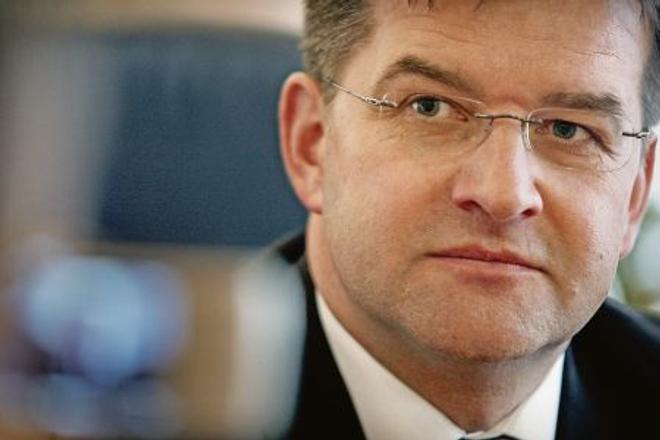FOREIGN Minister Miroslav Lajčák has served in diplomatic posts in Moscow, Tokyo and Belgrade. From 2007 to 2009 he was High Representative/EU Special Representative for Bosnia and Herzegovina, the position created by the Dayton Accords that ended the Bosnia War, which is meant to aid the country in its transition to a functioning democratic state. This is his second stint as foreign minister. He recently sat down to talk about developments in Slovak foreign policy and his plans for the future.
The Slovak Spectator (TSS): You are in charge of drafting the country’s human rights strategy. This process has been delayed. Why?
Miroslav Lajčák (ML): It is extended.
TSS: What is the difference?
ML: This strategy is a Slovak initiative. It was proposed by the previous government. We picked it up. There is no international obligation committing us to do so and only one European country – the Netherlands – that has also done so. There are no deadlines.
The moment we started, we were overwhelmed by a massive, emotional and aggressive reaction [as the discussion turned to rights for LGBTI persons]. Why would I insist on a deadline which is voluntary, ignoring the atmosphere in society? I would rather extend the process six months to give us time to discuss. Otherwise it feels like something is being cooked up behind closed doors.
Rumours have been spread, which are lies, saying we are going to destroy traditional families, traditional values. Twenty years into Slovakia’s independence, we want to reflect on what we have, where we stand in relation to our international commitments and the protection of vulnerable groups. It’s not a law, it’s a strategy. In a way it’s a mirror.
TSS: What will you include in the document?
ML: There is a gap between our international commitments and the practical implementation or people’s awareness of these rights and the mechanisms for protecting these rights. One thing that will be there is to focus on human rights education.
There is a need for a cultivated discussion of issues on which there are different views. Obviously the LGBTI discussion represents that biggest level of polarisation in society. The Roma issues are of course something that needs our attention. We are not going to let anybody use the strategy to impose the view of one group of people on another. There are also other groups of vulnerable people, elderly, children and disabled people.
TSS: At the end of 2013, you went to Iran to negotiate the return of the last of two Slovaks held by the Iranians over allegations of espionage. What did you offer in exchange?
ML: We were clear and firm in our position. We did not make any concession money-wise or by way of our values. The way of communication was the right one obviously, because it delivered results. We were set on quiet diplomacy and very intensive communication, treating the issue as a consular issue without entering into polemics about the specifics of the case. We also managed to convince the Iranian side that to find an amicable solution is better for them.
Iran, with the new leadership, is showing a new face. We also managed to have these guys avoid being formally charged with violating the law.
TSS: There are some 200 Slovak soldiers in Afghanistan. Two were killed just after Christmas and another earlier last year. What is your plan for the future?
ML: We will stay to the end of the ISAF mission and we are ready to stay beyond. Of course all of this depends on signing the security agreement [with the Afghan government]. It is one of our top commitments for development assistance and we feel committed.
TSS: But is there something in Slovakia’s national interest about being there?
ML: It’s not about the particular interests of Slovakia. It’s about our commitment to our membership in NATO. That is how we understand the alliance. It is giving and taking. This is a mission in a UN Security Council resolution-based mission. There were some voices of opposition after these tragic incidents, but the vast majority of our public thinks it is important we stay. Either we export security or we will be importing insecurity.
TSS: There are rumours you are a candidate for other jobs. UN Secretary General is one, European Commissioner is another, possibly prime minister if Prime Minister Robert Fico wins presidential elections in March. So, are you interested?
ML: I am not aspiring for any job. I am the foreign minister of my country and this keeps me happy. I don’t waste my time speculating. All the jobs I ever had in my life are not jobs that I applied for.
TSS: And you have no interest being prime minister starting next month?
ML: People should do what they understand and for me it is foreign policy. I still enjoy it and this is what I want to continue doing. The prime minister must be somebody who knows the party rank and file, who has been through the dirt of opposition. I don’t believe I would even theoretically be eligible. I am only a part of Slovakia’s internal politics as much as I must be to be foreign minister.



 Foreign Minister Miroslav Lajčák (source: SME)
Foreign Minister Miroslav Lajčák (source: SME)